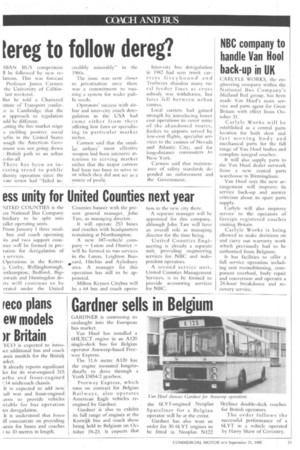tereg to follow dereg?
Page 15

If you've noticed an error in this article please click here to report it so we can fix it.
ZBAN BUS competition be followed by new relations. This was forecas.t Professor James Carmen the University of Califor. last weekend.
But he told a Chartered ititute of Transport confer:e in Cambridge that the approach to regulation mki be different.
...ening the free market reign ,s yielding positive Social lefits in the United States tough the American Govnnent was not going down British path to an urban There has been an ineasing trend to public thorny operation since the vate sector had "failed in credibly miserably" in the 1960s.
The issue was now closer to privatisation once there was a commitment to running a system for wider public needs.
Operators' success with airline and inter-city coach deregulation in the USA had come either from their offering low fares or specialising in particular market niches.
Carmen said that the smaller airlines' most effective weapon had been intensive attention to serving market niches that the major carriers had been too busy to serve to or which they did not see as a source of profit. Inter-city bus deregulation in 1982 had seen trunk carriers Greyhound and Trailways abandon many rural feeder lines as cross subsidy was withdrawn, but fares fell between urban centres.
Local carriers had gained strength by introducing lower cost operations to cover some of the abandoned routes, feeders to airports served by low-cost flights, specialist services to the casinos of Nevada and Atlantic City, and for long-distance commuters to. New York.
Carmen said that maintenance of safety standards depended on enfotcemcnt and the Government .




































































































